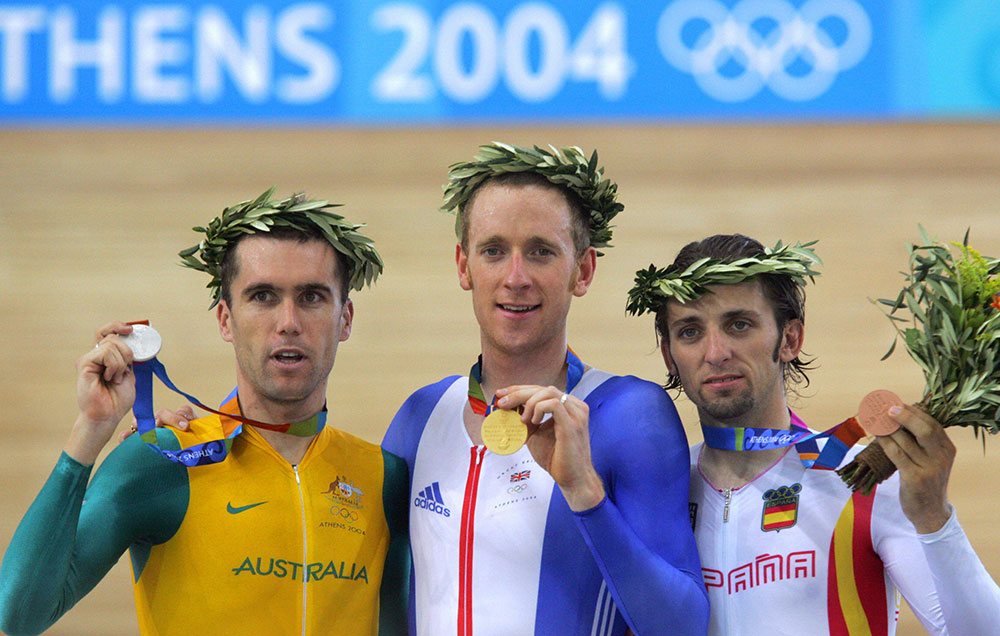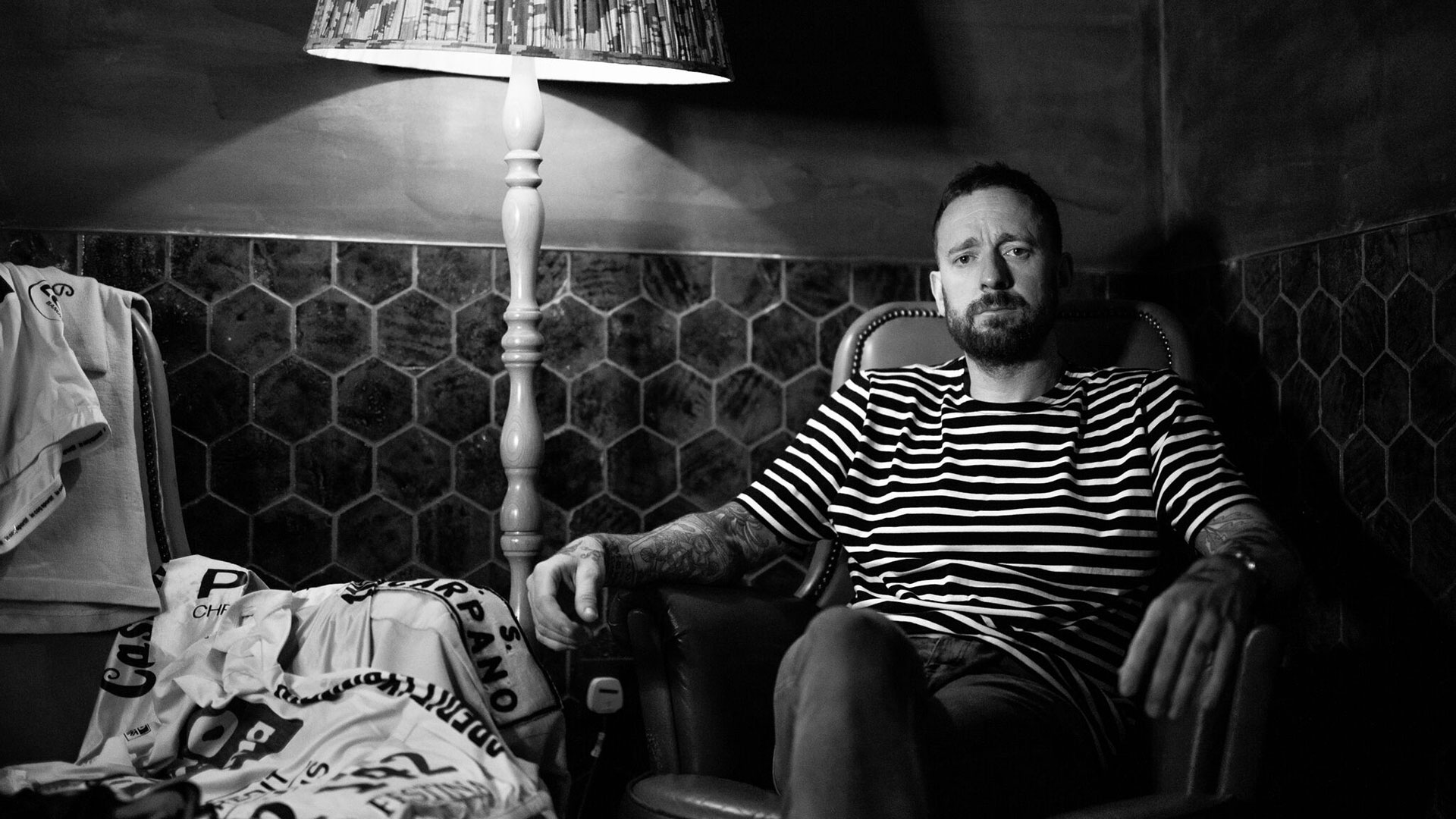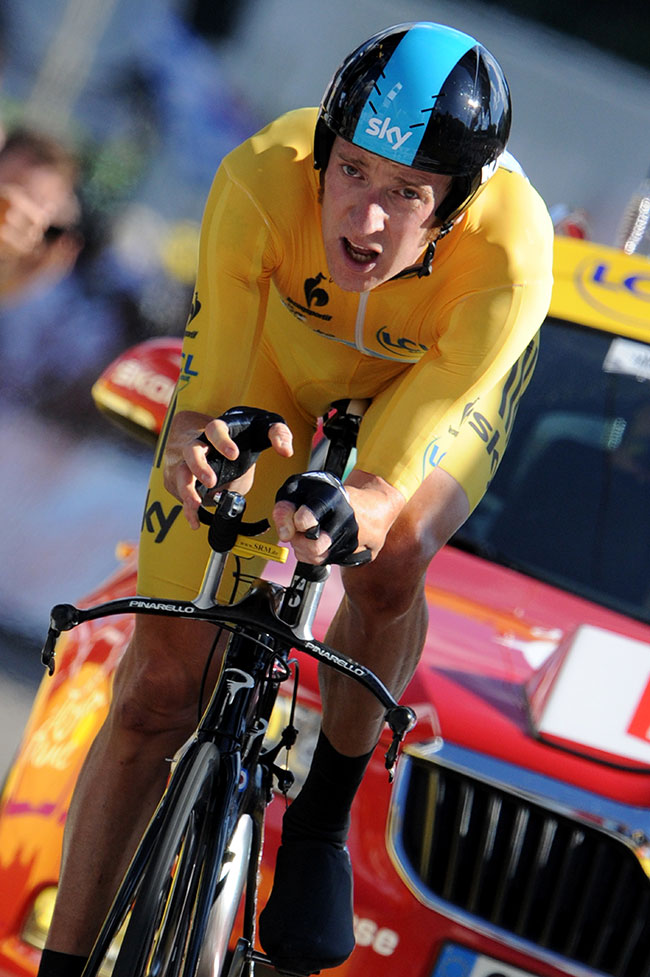At 16 I was living on an estate in Kilburn.Cycling wasn’t like it is now, it wasn’t a popular sport – it was non-existent. But I was completely obsessed with it. I spent most of my time in school reading cycling magazines. I’d pretty much given up on school, maybe stupidly, but I knew what I wanted to do as a career. I probably had the ability to go to university and get degrees and all that but I just wasn’t interested. My art teacher asked me when I was 12 what plans I had, reminding me GCSEs were only a few years away. I said, I want to wear the yellow jersey on the Tour [de France], and I want to win an Olympic gold. She just laughed. Maybe it was stupid, but I believed it 100 per cent.
Because of the nature of cycling, wearing Lycra, that sort of thing, it came with a lot of bigotry, homophobia. It wasn’t like it is now. We didn’t have national heroes like [Mark] Cavendish who made the sport cool. You didn’t see a lot of teenage boys wandering through housing estates wearing Lycra. I had to run for my life a lot of the time. I had to wear my tracksuit until I got out of the estate or I’d have got my head kicked in. It was a lot of hassle, and looking back I don’t know where I got the strength from. I witnessed a lot of horrific things as a kid, but I didn’t consider them horrific at the time. I saw someone being stabbed and murdered, but that was a regular occurrence. If I saw that now I’d be traumatised, but then it was just a mundane, everyday thing.
We're spoiling you this summer! Here's next week's cover with the legendary @SirWiggo. On sale across the UK from Monday.
Enjoy! #bigissuepic.twitter.com/sQr6AtfRvr
— Big Issue (@BigIssue) August 23, 2019
I was very lucky – my success came around the time of the London Olympics, and I’d won the Tour just the week before. So my winning was a seminal moment in British sport, I think it really was. Straight after that Olympic win, I knew it couldn’t get any better. How could it get better? So afterwards you’re constantly asking yourself these loaded questions, where do you go next? If I could go back, I’d put an arm around myself after 2012 and keep it there for a few years. Every time I walk out the door I’m hero-worshipped for something that happened seven years ago, but no one ever asks, ‘How are you now Brad? Are you OK?’ So I’d put an arm around that post-2012 Brad and tell him it’ll end up OK.
I don’t give a shit about my cycling career now.I’m just detached from it, I don’t want to live off the back of it. I live off of being me, and I’m happy in my own skin. I’ve gone full circle, I watch it as a fan now. I don’t expect to be recognised or anything. Some people like to cling on to those moments. I see it on social media every day, people who are supposed to be your friends, still celebrating that moment. ‘Seven years ago today my mate Bradley won this race in London..’ And I’m like, it was seven years ago, get over it mate. But a lot of people get comfort from keeping you in a place that inspires them so much. We do that a lot to our athletes, everyone wants them to stay the same forever. I think that’s why so many of them disintegrate, like Paul Gascoigne. It’s nice to be remembered but I can’t keep waltzing in with a rock’n’roll haircut and a suede suit on, drunk. I’ve moved on from that person. Everything ends, everything has to end.

I had quite a tough period [during the controversy over accusations that he had taken a performance-enhancing substance, including a 14-month investigation launched in 2016 by UK anti-doping which Wiggins called a “malicious witch-hunt”]. I felt like I was in the eye of the storm, and I was trying to prove a negative. But the fact that I’m back working in the sport [as a television cycling pundit] is testament to the fact that I did nothing wrong. The people who are responsible for what happened are now on a charm offensive but people aren’t stupid. I’m not angry though, I’ll be involved with cycling a lot longer than those people, because I love it. Hopefully that whole time will be one of the worst things that will ever happen to me, in a sporting context. Some horrific things that I don’t want to discuss now have happened to me recently and they’ve made me realise what’s important in life. They’ve made me able to look at the cycling world without an ego, and just be happy for the new guys coming through, rather than begrudging them their achievements and worrying about holding on to my record. I’m happy now about the way I’m heading.










